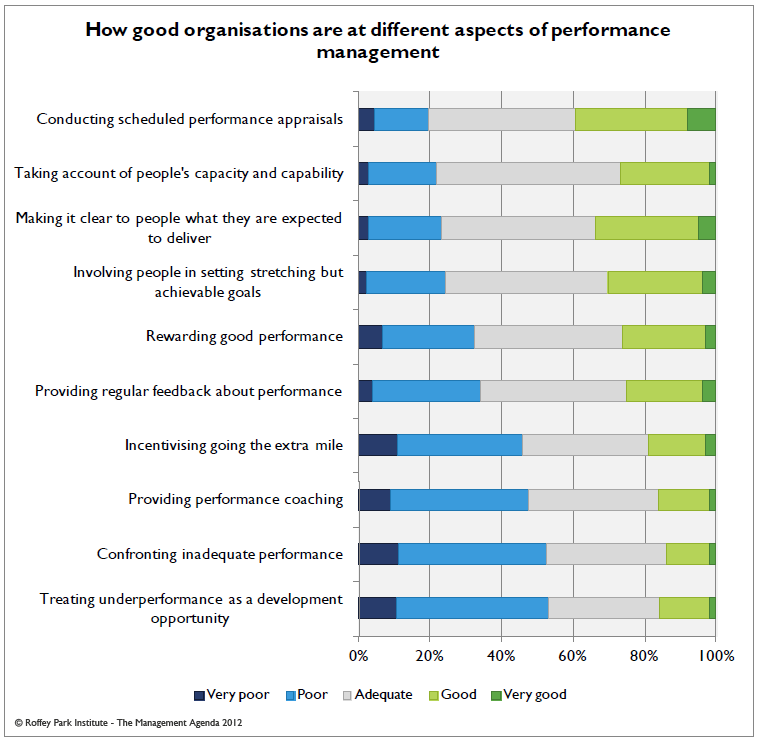Last week the Beecroft report hit the headlines as the government’s plans to boost growth and productivity were made public. My colleague, Gary Miles, writes in People Management online today that ‘no fault dismissals’ lets poor management off the hook and would do little to stimulate growth.
Underperformance is a real issue in organisations. Our own Management Agenda research published in January found that nearly half of managers surveyed thought that underperformance was not tackled well in their organisation. The graph below taken from the report shows that organisations are better at the process of managing performance but barely adequate when it came to confronting inadequate performance, providing performance coaching or treating it as a development opportunity.

In reality, dismissal because of underperformance can be avoided by line managers. Let’s face it; most of us don’t want to be cast as the ‘bad guy’ so noticing and confronting the early signs of poor performance is often avoided. The most effective line managers will take control and talk about it – but how?
Be prepared. Work through the conversation noting down what’s happened, what data you have, the impact and your expected outcome.
Anticipate emotions. Difficult conversations may generate high emotions. You won’t know what these might be, but if you are mentally prepared for them then they will be easier to handle.
Be structured. Using a model such as DELACT will provide a useful framework for handling the conversation. Don’t begin the conversation with small-talk or skirt around the issue, be clear from the start and stick to your earlier preparation.

Listen. As the conversation develops, summarise what you are telling them and what they are telling you. Not only does it create clarity but it also demonstrates that you are listening to them.
Recap and review. At the end recap what you have agreed and fix a review date. Be clear about expectations and offer support which extends beyond the conversation,
Having difficult conversations is never easy but the most effective leaders and managers must hold their teams accountable. If people know that they are valued, that they are contributing at an individual and team level, then engagement levels will increase and organisational performance improves.
What tips do you have for handling difficult conversations?





